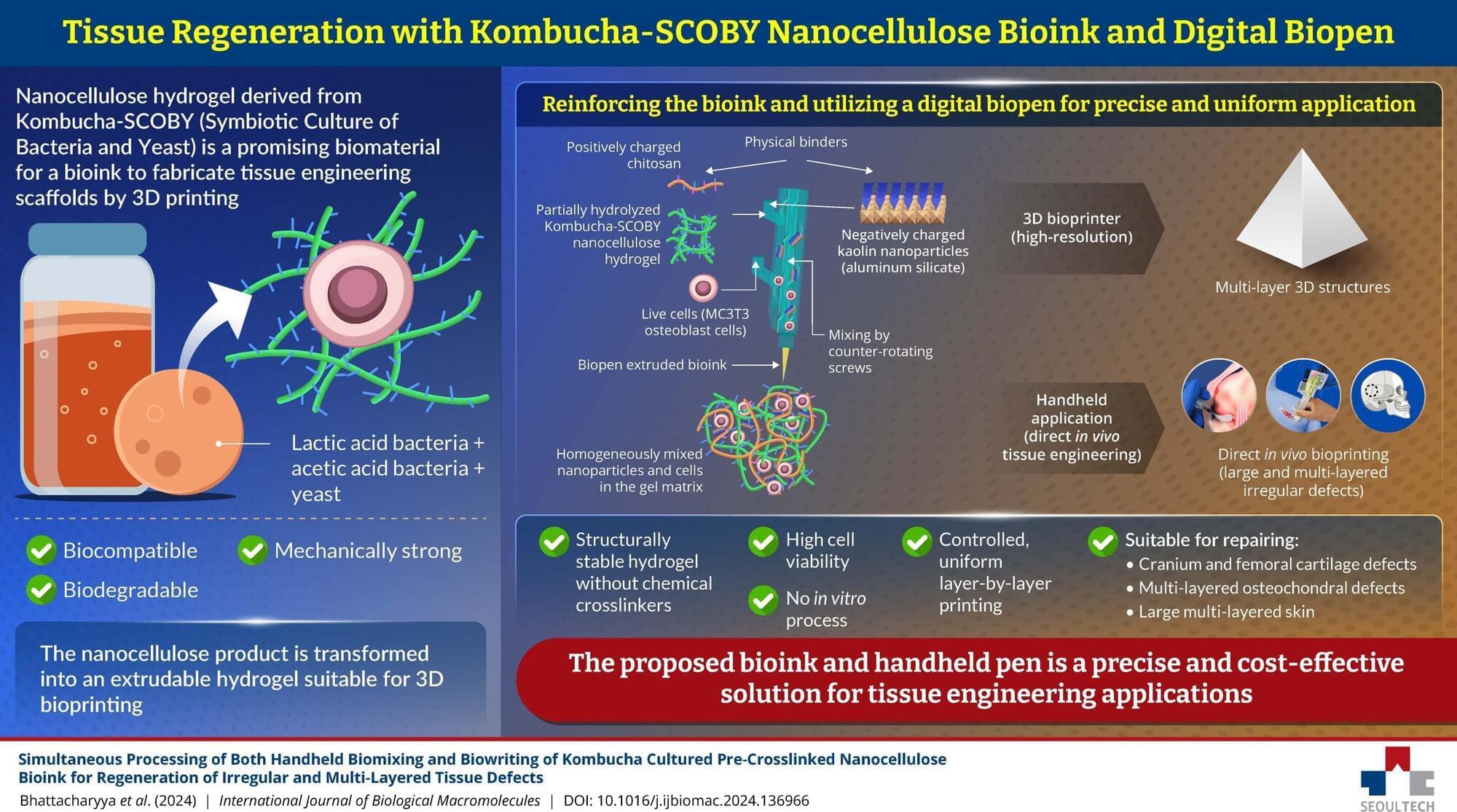Tissue engineering utilizes 3D printing and bioink to grow human cells on scaffolds, creating replacements for damaged tissues like skin, cartilage, and even organs. A team of researchers led by Professor Insup Noh from Seoul National University of Science and Technology, Republic of Korea, has developed a bioink using nanocellulose derived from Kombucha SCOBY (Symbiotic Culture of Bacteria and Yeast) as the scaffold material.
The biomaterial offers a sustainable alternative to conventional options, and it can be loaded onto a hand-held “Biowork” biopen, also developed by the same team. The digital biopen allows the precise application of bioink to damaged defected areas, such as irregular cartilage and large skin wounds, paving the way for more personalized and effective in vivo tissue repair, eliminating the need for in vitro tissue engineering processes.
This paper was published in the International Journal of Biological Macromolecules on 1 December 2024.
